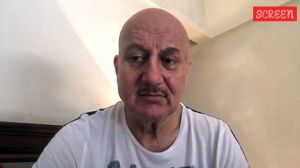Why has Supreme Court recalled its reference to CBI as a ‘caged parrot’
In his judgment granting Delhi Chief Minister Arvind Kejriwal bail in the CBI case over the alleged Delhi liquor policy 'scam' on Friday, Justice Ujjal Bhuyan wrote: 'Not so long ago, this Court had castigated the CBI comparing it to a caged parrot.'
 Justice Bhuyan was referring to an observation made by Justice R M Lodha in 2013 while hearing a matter regarding alleged irregularities in the allocation of coal block licences to private companies, which was referred to in the media as the “Coalgate” case. (Express archive photo)
Justice Bhuyan was referring to an observation made by Justice R M Lodha in 2013 while hearing a matter regarding alleged irregularities in the allocation of coal block licences to private companies, which was referred to in the media as the “Coalgate” case. (Express archive photo)For the second time in about a decade, India’s highest court has used the expression “caged parrot” in reference to the country’s premier crime investigation agency.
In his judgment granting Delhi Chief Minister Arvind Kejriwal bail in the CBI case over the alleged Delhi liquor policy ‘scam’ on Friday (September 13), Justice Ujjal Bhuyan wrote: “Not so long ago, this Court had castigated the CBI comparing it to a caged parrot. It is imperative that CBI dispel the notion of it being a caged parrot. Rather, the perception should be that of an uncaged parrot.”
Justice Bhuyan was referring to an observation made by Justice R M Lodha in 2013 while hearing a matter regarding alleged irregularities in the allocation of coal block licences to private companies, which was referred to in the media as the “Coalgate” case.
Here’s what the alleged case was, and what Justice Lodha said.
The ‘Coalgate’ case
The Coalgate case was about alleged irregularities in the allocation of coal blocks by the Congress-led UPA regime. The case was one of the several political scandals that contributed to the narrative of widespread corruption during the second term of the Manmohan Singh government.
The alleged scam was spotlighted by a report by the Comptroller and Auditor General of India in 2012 that appeared to show inefficient and possibly illegal allocation of coal blocks between 2004 and 2009. The report said the blocks were allocated by the government without a process of competitive bidding, leading to a presumptive loss to the exchequer.
The CAG initially estimated the quantum of presumptive loss to the exchequer at a staggering Rs 10.7 lakh crore, but toned this amount down to Rs 1.86 lakh crore in the final report.
Following a complaint by the BJP, the Central Vigilance Commission (CVC) directed the CBI to probe the matter for corruption. A report by the Parliamentary Standing Committee in 2013 said allocation of blocks between 1993 and 2008 was done in an unauthorised manner, and that the allotment of all mines where production was yet to start should be cancelled.
The Supreme Court constituted a special court to try all cases related to the coal scam.
What Justice Lodha said
Justice Lodha’s observation came amid a raging controversy over the CBI sharing its draft status report on the alleged irregular coal block allocations with the political executive and officials in the Ministry of Coal and the Prime Minister’s Office in 2013.
A three-judge Bench led by Justice Lodha was examining a nine-page affidavit submitted by the CBI. Then CBI Director Ranjit Sinha said that then Law Minister Ashwani Kumar had made certain “significant changes” in the agency’s draft probe report on Coalgate, and top law officers and government officials, including those from the PMO, had suggested amendments.
In response, Justice Lodha first “loudly berated the attorney-general, the government’s top lawyer, for what he said was clear evidence of interference in a CBI inquiry”, according to Reuters report from the time.
He went on to say, according to a PTI report: “The CBI has become a caged parrot speaking in its master’s voice. It is a sordid saga that there are many masters and giving unbridled power to the CBI is not possible. The CBI has become the police force and is in the administrative control of the Central government. CBI investigations have to be independent.”



- 01
- 02
- 03
- 04
- 05



































